Editing a Manuscript by Ginger Simpson
I was a ‘reader’ for years before I decided to try my hand at writing my own historical romance, Prairie Peace. I can truly say I was shocked to find I had no idea what went into getting your name on the front of a book. Though my first manuscript was accepted for publication after one query, the transformation it went through was grueling. I discovered I’d written a great story, but it wasn’t yet a novel.
I told about the pies, but didn’t transmit the awesome aroma to the reader. The love scenes were described, but not to the point the person turning the pages sensed the butterfly kisses trailing up her neck. I described the emotions, smells, and flowers, but I didn’t let my reader experience them. Until I learned that showing over telling made the difference, my story lacked warmth and feeling. People want the breeze in their faces, crave the goosebumps from his touch; they need their stomachs to rumble with want for the bubbling stew. I did when I read, so why did I forget when I wrote? I can only say it’s because as an author, you look at the words from a different perspective. Even when I proofread my story, I didn’t notice what was missing other than the occasional comma or missing end quote.
When you write historical novels you also have to research the facts. Readers notice glaring mistakes such as a pioneer wife calling the ‘kids’. She might get goats, but she’d never get the ‘children.’ I created a beautiful scene of my heroine cooking breakfast on a stove while peering out the splintered shutters at the barn. Nice touch, but as my editor pointed out…”she lives in a shack on the middle of a prairie in the 1800s. What are the chances of such a modern appliance?” So, my heroine went back to kneeling at the hearth to stir the soup, and the stove magically disappeared. Duh uh. Why didn’t I think about that?
Besides inventions, authors have to consider language, clothing, and scenery that fits the period. My Cecile couldn’t very well look off into the distance and see an airplane. Talk about yanking the reader out of the story! How about if she crossed the squeaking old porch, closed the weathered door and set the deadbolt? *lol* I didn’t go that far, but my editor worked hard to help me avoid the obvious. She taught me the importance of credibility as an historical author. She also taught me about head-hopping. Only Nora Roberts can do that and get away with it.
Oh, (hear a big sigh here) if only those were the only lessons one had to learn. (Imagine my brow furrowed) I’m now a multi-published author, and I’ve been through countless editing sessions. I’m still learning, and the hardest thing to absorb is why the rules keep changing. (Picture a frown tugging at my lips.) Just (oh, and by the way, some editors hate that word), when I thought I had a handle on Edits 101, I moved to a new publisher and discovered a whole different set of rules. Publisher number one likes ellipses and em-dashes; number two forbids them. Publisher three dislikes semi-colons, while number four uses them, but requires you go through your manuscript and delete as many instances of would, should, could, have been, was, and of course all unnecessary uses of ‘that’. The shock came in knowing I had to eliminate my beloved ‘ing’ and ‘ly’ words which I consistently use throughout my stories. I’m also limited to eight exclamation points, so I guess I’ll have to count the number of times someone shows surprise in their voice. Do most reader’s actually notice this punctuation mark?
Don’t think for a moment that (this is one of those unnecessary usages of ‘that’) I don’t admire the wonderful people who read and comment on all the manuscripts being submitted these days, or appreciate their hard word. My point: why can’t there be some consistency? After going through my last manuscript and deleting or changing to fit house rules, I started proofing a manuscript for another house. The story I’m reading is filled with all the things I just deleted. And I wonder why I’m losing my hair? Literally.
I wish I had started writing for publication much sooner. At least, I’d have the brain cells to absorb all the different requirements and nuances, but at sixty-two, I’m discovering I’m that ‘old dog’. It’s not only the editorial issues. I’m still trying to discover the correct way to query an agent. If you don’t believe how confusing it is, check out the submission pages on any three or four agent sites and tell me they don’t stay up nights thinking up that one requirement that differs from the norm. I’m waiting for ‘stand up, circle three times, sit down, and recite the national anthem before hitting send.” And no fair cheating.
I’m telling you, writing a story is a lot easier than writing a book. I must be a glutton for punishment, because I keep striving to reach the stars. I’m finding the path to get there is paved with big confusing stones.

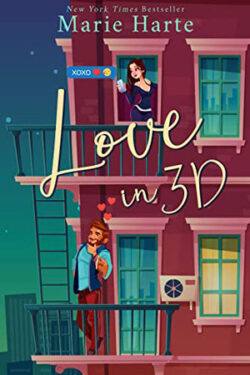
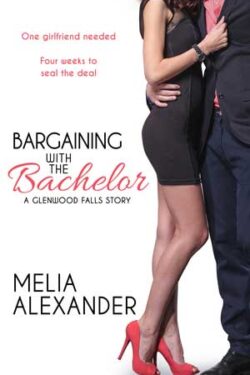
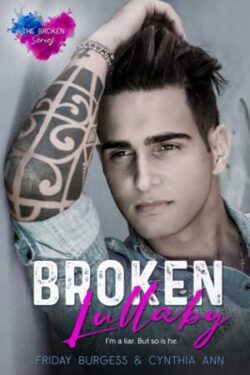
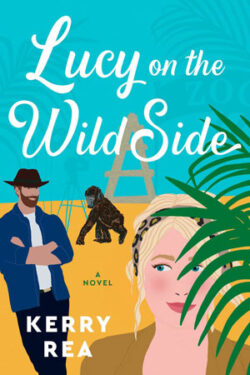
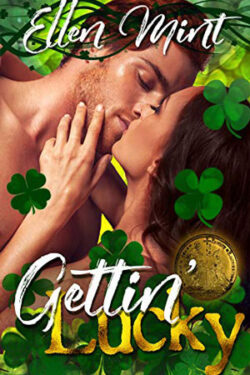
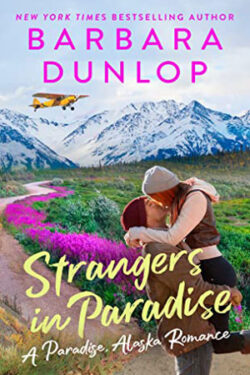
was very pleased to find this web-site.I wanted to thanks for your time for this great read!! I certainly enjoying every tiny bit of it and I’ve you bookmarked to have a look at new stuff you weblog post.
I see you got talent in writing posts. Waiting for more articles
[url=https://www.i-bukmacher.pl/ksw-18-zaklady-bukmacherskie-rozalski-vs-le-banner/]ksw 18 bukmacher[/url]
Hey There. I discovered your blog using msn. That is a really smartly written article. I will make sure to bookmark it and come back to learn more of your helpful information. Thanks for the post. I’ll certainly return.
glad to see your thoughts. I hope you keep up the good work.
[…] Editing a Manuscript by Ginger Simpson […]
Wow, I’m late! I’m late! I’m late! Great blog Ginger and um wow who ever it was that mentioned a single space between sentances just gave me an anxiety attack. Dunno how I’d ever break that habit. It would be like hitting the gas peddle when the light turns red instead of the brakes.
I love exclamation marks too!!!!!!!!!!!!!!!!!!!!!
Ally
LOL! Wonderful post, Ginger and so very TRUE!
With 3 different publishers, I’m finding major differences in the editing process.
Good luck and God’s BLESSINGS you ‘old dog’ LOL (no one would ever think that of you) 😉
Pamela S Thibodeaux
“Inspirational with an Edge!”
The Visionary coming soon from Enspiren Press!
Just had to drop back and thank Bruce and Jenna for their comments. Jenna, you prove my point about editorial selection. Although I realize that people have preferences, editing should be about consistent style and format, not what a person prefers. When you have so many editors and opinions, the lines become blurred and confusing. This, in my opinion, is what has happened.
I’m also happy to see that publishing companies are asking applicants for their editing positions to take tests and demonstrate knowledge of the craft. Everyone can read, but not every Tom, Dick and Harriet can or should edit. I write, therefore I edit isn’t a credible reference. I tried my hand at it, and it’s tough. Very tough and I’m in no way qualified… or strong enough to take the stress.
Great article Ginger,
Its full of all the problems I have come across. Its interesting to see how editors think, even though they are all different. I think it takes more timer to edit your own work than write the book.
Now, see, being an editor, I don’t really care that much about a lot of the rules (except head hopping, which I hate!) as long as the story is entertaining. And I can even let head hopping slide if I can’t see it. If I have to go back and check, then I let it go. I like commas, lots and lots and lots of commas. I like exclamation marks. And, I agree that there are too danged many rules. It takes the fun outta writing!!!!!! Hrumpf
Nice to see Ellie and Rita, my Eternal Press pals making an appearance. We are all learning together how tough it is to get to the final polished product: Research, editing, and promoting. The hard work really starts once you have book in hand.
I hope everyone will visit my blog at https://mizging.blogspot.com and check out my new upcoming releases. I’m so excited to be back in the game with something new to talk about. There’s no feeling quite like surviving the editing. *lol*
When you guest blog, that’s where you find out who your friends are. 🙂 They come to support you and keep the room from feeling quite so empty. Thanks Anita, Deborah, Vicki, MamaKim, Jena, Jan, and Carol, Ellie and Rita for being here. Let me know when I can repay the favor.
It’s 8:00 PM so I’m going to say goodnight to all who visited today. This was fun, and I’m thankful to Romance Junkies, especially Kim, for extending the invitation to come and play. I chauffeur my grandson to school, so my days start early. Goodnight, and thanks again.
Ginger
Ginger… great blog… and sooo true. There is so much more to writing than one would ever guess…and once you start writing…it’s like you’ve been bitten and can’t go back…you’re hooked for life!
But you have to agree… research is the fun part! I have to time myself once I start picking up my research books… so much info…and so little time!
I enjoyed your blog… and wish you much success on reaching your goals and dreams, girlfriend. Rita Karnopp
Kiaora Ginger
iIagree there are sometimes far too many rules thrown at authors, but writing tighter and with more of the senses usually works.
I love historical romances, but i do expect them to refelct the period they are set in. So research is paramount, but not when you make lists of material to show off how knowledgeable you are about the period.
Ellie
Jan,
And it would be wonderful it Santa Claus was real. 🙂 Since I began writing in 2003, things have only gotten more confusing. I’m pretty sure things will never be consistent.
Ging
No commas? I’m still trying to grasp the new rule of single spacing between sentences. It would be wonderful if there was one consistent style manual.
Jan
Deborah,
From the your lips to the ears of other editors. I’ve always had a hard time writing to word requirements, and when I’ve had to cut what you refer to as ‘simple past and passive’ from my story, then I suffer in more ways than one. Now I’m being asked to remove ‘that’, ‘was’ and ‘ly’ words. As I mentioned earlier, that makes my writing sound stiff and unnatural to my own ear. The silly rule that gerunds make for a lazy writer holds no value in my humble opinion. I think they add to the flow and give writing style, but as I said, that’s my opinion. I like them.
I’m always amazed how some people can be so wordy, and now that I’ve done a little proofreading and editing, I find a good portion of the stories that exceed 100,000 usually are fraught with woulds, shoulds and coulds. It seems that most editors view these as no-nos. I once wrote in this manner, but now I don’t, and I’ve got the whip marks to prove it. 🙂 I’ve learned to show the scene with fewer words, and it works for me now, but it didn’t always. I guess an old dog can learn some things.
But, I shall follow your advice about writing in the style that is best for me, because I have to tell you, I’ve almost given up trying to figure out what fits these days. Thanks for the suggestion. The song, “I’ve Gotta Be Me,” comes to mind. You’re a peach.
Ginger:
My point is there really isn’t a wrong way or a right way, just preferences.
Write the way you think is best, and then go with the flow during the editing process — provided you can live with the editorial changes in order to see your book published.
On verb tenses other than simple past: again I think this may derive from advice that’s become a bit distorted from its origins. Some beginning writers don’t always present action in immediate scenes, instead they give the reader too much recounted information. Wading through pages of past perfect is harder on a reader than reading the scene as it happens, real time. Advice to fix this has become, over time, a “rule” to only use simple past. (Adhering to this rule can cause confusion by being imprecise about previous actions.)
Some of these “rules” seem to vary by country and genre. I find the rules about simple past and “passive” verbs strongly entrenched amongst US romance writers, more so than with U.S. literary authors or authors from other countries. Since I read a wide variety of books, predominantly by British authors, I don’t find conditional or other compound verb tenses distracting if properly used. Again, it’s subjective.
I’m glad there’s no one “right way” to write. I welcome the fact there are many different writing styles in books being published today, to appeal to all our varied tastes.
Deborah
Yes, variety is the spice of life. I agree, although all these rules and changes certainly make it tough for authors to know what is right and what’s wrong. Past editors beat into my head, “avoid would, should, could, have been, etc.,” and now the words jump off the page at me. I find their usage distracting when I read the work of others who use them. They make the story feel like a story rather than a novel that is unfolding before my eyes. Some rules make sense… some don’t. I don’t see an easy solution, but then what’s easy about life these days?
You addressed stiff prose. I believe the words should flow and I’m finding my own stories sound stinted as I try to be mindful of all these rules and regulations. Where will it end?
So true about editing and the tortoruous road it sometimes is. I have a love-hate relationship with this process! As do, probably, most writers 🙂 Great post. Will be checking back.
Ginger:
Sadly, I think that kind of consistency is up there with world peace — a wonderful concept but just as unlikely. Editing is all about polishing the writing, and there are as many opinions about what constitutes good writing as there are editors.
The whole semi-colon vs em dash question is all about formality vs. informality — and changing prose styles. I think we’ll continue to see differences amongst publishers on that front for some years to come.
I also think that, over time, advice about strengthening one’s prose sometimes turns into “rules” — Thou shalt not use adverbs, Thou shalt not use the present progressive tense, etc. At the moment, adverbs are out of fashion with some agents and publishers but not others (JK Rowling comes to mind.) I know a writer who prides herself on not using “was” more than once or twice per chapter. To me, that over-reaction produces awkward constructions when the present progressive tense is called for (for ongoing action that is interrupted, for example) as well as contorted descriptions when a simple being verb would have been much clearer.
A question of taste, because other writers — and editors — would disagree. As the cliche goes, variety is the spice…
See, I knew you had something up your sleeve!
I’m having problems with not just ‘that’, but the ‘and then’ thing.
I am being published by a Canadian press, so editors put in a lot of ‘that’, and ‘and then, where I wouldn’t normally. I conform simply because that is what is expected, but I think ‘and’ in front of ‘then’ is clumsy – [even though I try to avoid ‘then’!]
Then there is the hanging apostrophe – Charles’s or Charles’, James’s or James’
I am told an apostophe shouldn’t hang, but what about womens’, girls’, mens’ etc.
It’s an enigma!!
Hey there, Ginger; Enjoyed your talk on editing. I know exactly what you mean as I’m in the midst of it again with the republication of Something About That Lady with a different publishing house. Am finding out no two editors are much alike and some differ as night and day. Whew! Good luck in your ventures! Carol McPhee
Jena,
I guess I haven’t gotten to that publisher yet. *lol* I copied off a page from the internet about the use of commas when I was doing some editing and proofreading. The author of that piece says that commas in fictional short sentences are not required. Wonder when that rule came up. Maybe we should just eliminate punctuation altogether and let the house editor decide what works best. *lol* I’m sure if we did, though, our writing wouldn’t make it to the editor’s desk. I’m scared of semi-colons and have nightmares about exclamation points. Writing can get scary.
Hey Ginger! Great blog. It sounds like editing is confusing at times
Ginger;
You are so right. Have you noticed how they are doing away with the comma, too. My editors keep dropping them from my manuscripts. Editing can be so confusing, from house to house. Thanks for writing about it. This article will serve as a warning to those who will come behind.
Believe in Dreams!